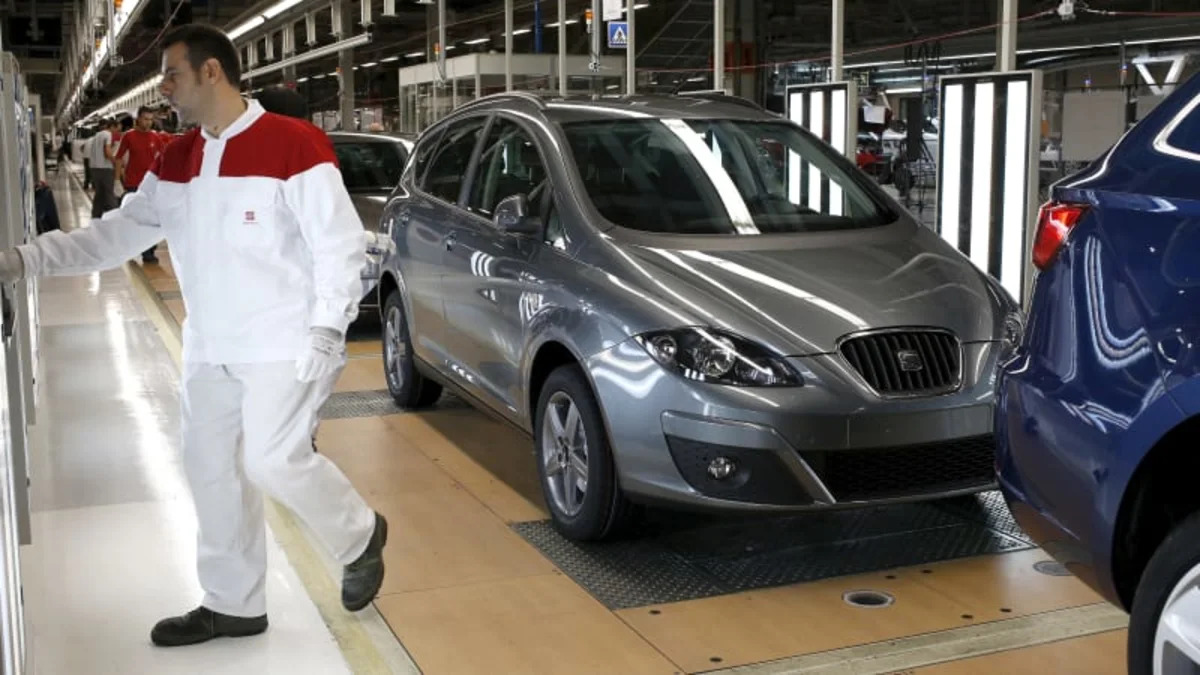Spain is moving aggressively to land new battery and electric vehicle plants, using billions of European Union pandemic relief funds to avoid being left behind as the global auto sector undertakes the biggest technology transformation in a century.
As Europe's second largest car-producing nation behind Germany, and with the automotive sector accounting for 10% of its economy, Spain has a lot to lose as automakers overhaul supply chains and manufacturing for electric vehicles.
Germany and number three European producer France are already pouring funds into battery plants, supporting their respective national champion automakers, and both Volkswagen and Renaultare investing heavily in EVs on their home turf.
Less wealthy and with electric car sales lagging the EU's average, Spain is fighting back by deploying to EV projects some of the €140 billion ($168 billion) of EU COVID-19 relief funds it is entitled to.
"We have a clear goal. We want Spain to remain the EU's second-largest car producer in 2030, 2040 and 2050, regardless of the technology there is," said Raul Blanco, junior industry minister for Spain, also the world's eight largest carmaker.
Of the €70 billion to be sent from Brussels in the form of grants, the Spanish government plans to spend 13 billion on sustainable mobility through 2023.
That will mostly be used to promote domestic sales of EVs, improve charging infrastructure and build its first battery cell plant for cars.
In one of the highest-profile uses of EU funds in Spain, the government in March announced a public-private partnership aimed at promoting electric vehicles, with a bidding process due to start around July and winners to be announced by year-end.
The project, in which central and regional governments may hold a stake, will cover the manufacturing of batteries and EVs in Spain, demand promotion for electric cars and the development of infrastructure to support them.
A 40-gigawatt battery cell plant constructed as part of the project would cost over €2.5 billion, Blanco said.
The proposal has sparked competition among Spain's regions, with Catalonia offering land, public loans and aid to attract a battery plant, and neighbouring Aragon and Valencia also in contention.
While few private sector bidders have yet publicly emerged, Volkswagen AG's Spanish SEAT brand and utility Iberdrola (IBE.MC) have formed an alliance to work on a bid.
Spain upbeat about finding replacement as Nissan departs 3 plants
Spain is optimistic that an alternative project will be found to save thousands of jobs threatened by Nissan's (7201.T) decision to shut its three plants in the Barcelona area by the end of the year, a government official told Reuters.
A factory to produce electric vehicle battery cells is among 17 proposed projects that have been submitted by 13 companies for the facilities, junior industry minister Raul Blanco said in an interview, without specifying who was behind the battery plan.
Most proposed projects are linked to electric mobility, officials have previously said.
Sweden's Volta Trucks, which produces electric vehicles, is among the few bidders that have publicly announced their interest in the plants, where it could make its Volta Zero. It is part of a consortium of companies that has submitted a bid.
Nissan's factories employ around 3,000 people directly, and up to 20,000 indirectly when taking into account suppliers.


Sign in to post
Please sign in to leave a comment.
Continue